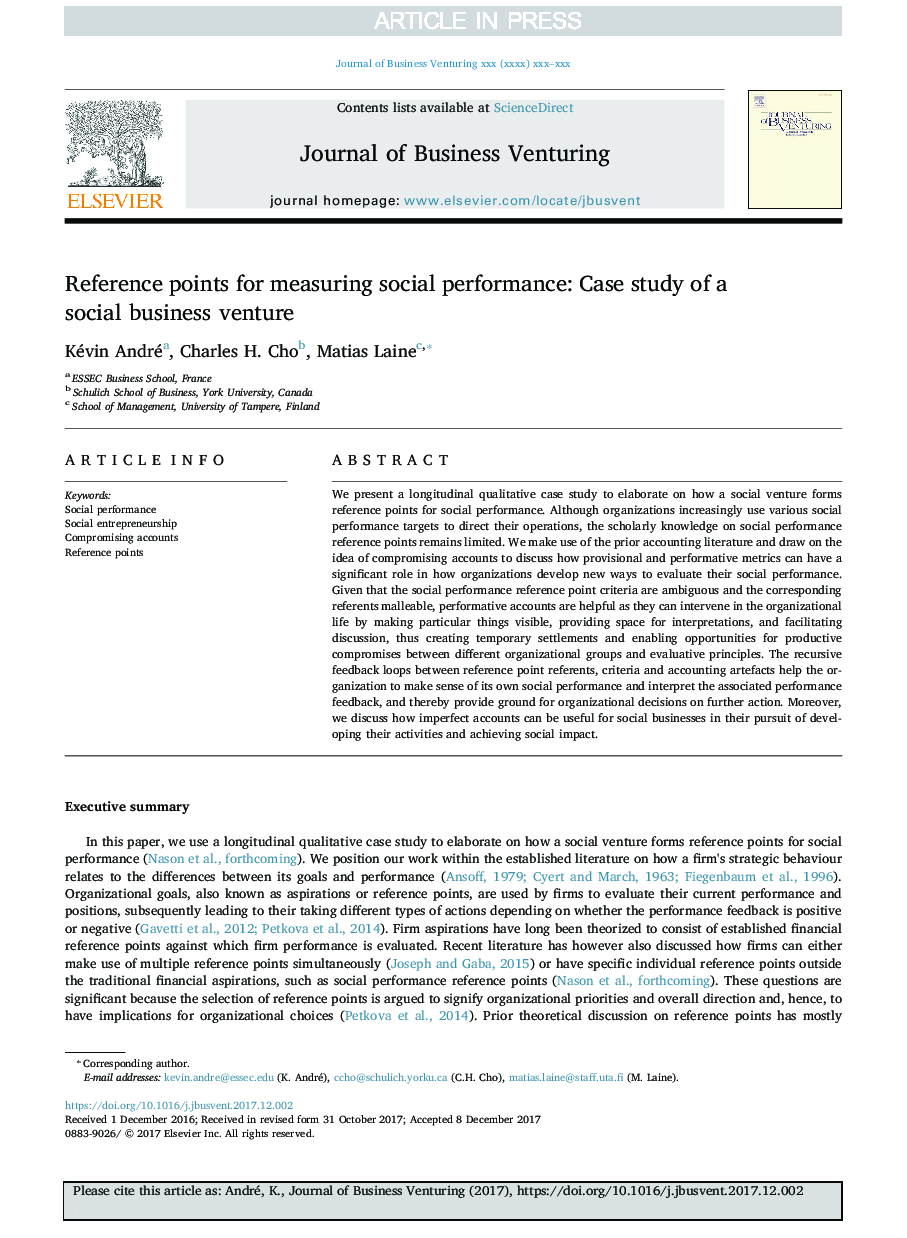| Article ID | Journal | Published Year | Pages | File Type |
|---|---|---|---|---|
| 7425637 | Journal of Business Venturing | 2018 | 19 Pages |
Abstract
We present a longitudinal qualitative case study to elaborate on how a social venture forms reference points for social performance. Although organizations increasingly use various social performance targets to direct their operations, the scholarly knowledge on social performance reference points remains limited. We make use of the prior accounting literature and draw on the idea of compromising accounts to discuss how provisional and performative metrics can have a significant role in how organizations develop new ways to evaluate their social performance. Given that the social performance reference point criteria are ambiguous and the corresponding referents malleable, performative accounts are helpful as they can intervene in the organizational life by making particular things visible, providing space for interpretations, and facilitating discussion, thus creating temporary settlements and enabling opportunities for productive compromises between different organizational groups and evaluative principles. The recursive feedback loops between reference point referents, criteria and accounting artefacts help the organization to make sense of its own social performance and interpret the associated performance feedback, and thereby provide ground for organizational decisions on further action. Moreover, we discuss how imperfect accounts can be useful for social businesses in their pursuit of developing their activities and achieving social impact.
Related Topics
Social Sciences and Humanities
Business, Management and Accounting
Business and International Management
Authors
Kévin André, Charles H. Cho, Matias Laine,
